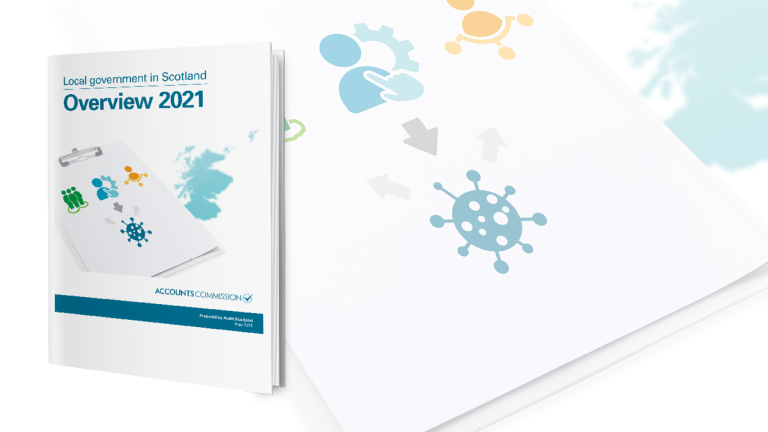Publication: Partnerships must be central in protecting and supporting people as we rebuild from Covid-19

Partnerships must be central in protecting and supporting people as we rebuild from Covid-19
Blog: By Stephen Moore, Member of the Accounts Commission
Governments, working in partnership, exist to empower, protect and enable and support all of us to live the lives we choose. At their best, partnership working is a force for change, underpinned with regard for our human rights, to benefit those who most need support.
And it is by strong, empowered partnership working, through collective action, that we can begin to rebuild our communities. This need is urgent, given the severity of the impact of Covid-19 on the most vulnerable and disadvantaged.

As we report in our latest Local Government Overview, councils working in partnership with the third sector and communities have been essential in protecting people’s wellbeing.
Indeed, partnerships that were well-established before the pandemic were able to shift more smoothly in their response to community needs. We report that many councils set up community hubs, such as the one we highlight in North Ayrshire. And some communities were able to offer a faster and more targeted response to delivering vital services.
Community Planning Partnerships also had a positive impact. They provided a much-needed way of co-ordinating local support activities and communications, delivering an immediate response involving key partners and communities.
But as councils focused on the immediate impacts of Covid-19, this has been to the detriment of many individuals and families who depended on support services. Under stress, service delivery has been reduced and diminished, perhaps losing focus on the needs of some of the most vulnerable in our society.
Whilst very difficult choices have had to made across all public services over the last year, the stark reality is that those already vulnerable and those most dependent on council services, have often been impacted the most.
Many of the problems that have become more exposed since March 2020 aren’t new. Life expectancy had already fallen, whilst significant numbers of Scotland’s population were living in poverty, on low wages, in poor housing. Yet we didn’t see collective action across all public services to tackle the long-standing causes.
This period of crisis can, and should be, used as a determination for change. And this change will only be realised through different public bodies, the third sector and communities working together.
The Accounts Commission want to see evidence that this change is happening, that partners across local government are working together, with communities, to make real change and real progress. We will report on this over the next months and years.
With so many suffering the immediate and longer-term impacts of critical services being stopped – from the closing of day centres, the cessation of respite service, to the impacts of patients being discharged from hospital – a collective, not an individual service response is needed. That’s why the work of the Accounts Commission, along with the Auditor General for Scotland, is critical to the country’s recovery, as we continue to focus on the interconnectedness of public policy, looking at how services are linked and joined together to achieve shared ambitions.
We will also continue to report on the longer-term approach public bodies need to make, the strategic thinking across councils and other local government bodies, such as Integration Joint Boards, to ensure services are fit for purpose. It has, for example, been seven years since legislation passed to integrate our health and social care services. Yet as we’ve already reported, change simply hasn’t happened quickly enough.
It is the responsibility of the Accounts Commission to continue to focus on the purpose, the remit and funding of local government, to hold them to account for the money and services they provide to the public.

Stephen Moore, Member of the Accounts Commission




